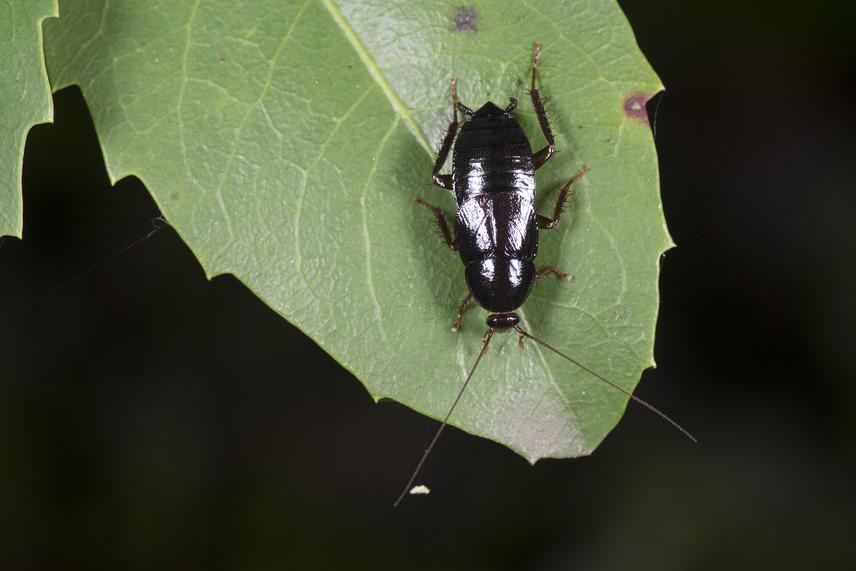Constanza Schapheer Carrasco
Other projects
23 Jul 2015
Conservation Status Assessment and Outreach on Native Cockroaches in Mediterranean Matorral, Central Chile
25 Nov 2019
Molukia Project: How Forestry and Endemic Cockroaches Can Help Each Other Through Microbiome? A Unique Case of Symbiosis in a Biodiversity Hotspot
Chilean Matorral is unique biodiversity hotspots. Although threatened, little is known regarding the taxa that support it, including detritivorous and epigeous insects.

Moluchia brevipennis on native bush in night observations. © B. Segura
Thanks to our previous Rufford-funded work (RSG N°18114-1), we have discovered a recurrent association of these native plants with Moluchia (Blattodea: Ectobiidae) endemic cockroaches. These insects Inhabited litter during cold seasons and visited endemic plant’s inflorescences and fruits from the spring onwards. We suggest these cockroaches play a key role in the maintenance of Chilean Matorral’s tropical remnants; both as nutrient-cycling detritivores, and potential pollinators for some endemic plants. Such data are necessary to direct evidence-based conservation plans for this biome. In this second step, we propose to study cockroach-plant interactions using an integrative approach to characterize its foraging behavior and diet: combining ecology, insect physiology and compound-specific stable isotope analysis. We aim to demonstrate the ecosystemic relevance of Moluchia, both as juvenile detritivores and adult floral visitors, in the Mediterranean Matorral biome. Moreover, we propose to provide continuity to our current outreach programs, including environmental education in local communities and schools and the production of social networking educational material on the natural history of native cockroaches in central Chile.